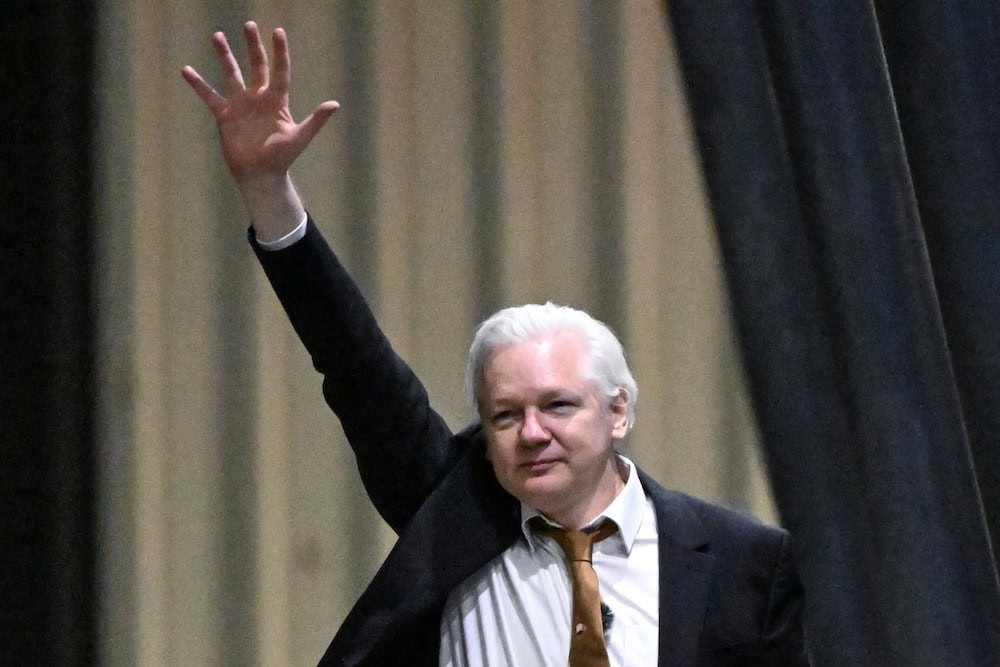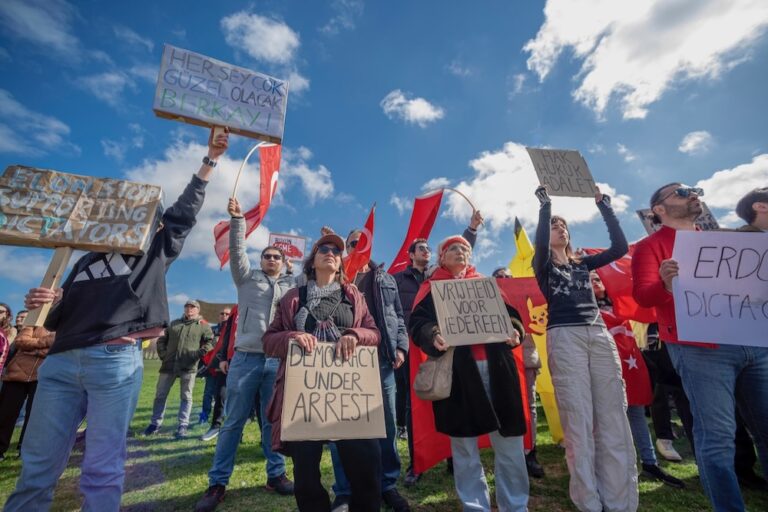"We are hugely relieved that Julian Assange is finally free - a long overdue victory for journalism and press freedom. He never should have spent a single day deprived of his liberty for publishing information in the public interest" - RSF
This statement was originally published on rsf.org on 25 June 2024.
WikiLeaks publisher Julian Assange, who has unjustly spent years in prison for publishing leaked information exposing war crimes and human rights abuses, is set to be freed after reaching a plea deal with the United States. Reporters Without Borders (RSF) is hugely relieved by his release, a victory for press freedom and the culmination of a years-long campaign for justice.
According to WikiLeaks, Assange left Belmarsh high-security prison in London on the morning of 24 June, after spending 1,901 days there awaiting the outcome of extradition proceedings initiated by the United States. He was granted bail at the High Court in London, and then taken to Stansted Airport where he boarded a plane to leave the UK. He is expected to reunite in Australia with his wife, Stella Assange, and their children – who have never met him outside jail.
Details of the plea deal have yet to be released, but Assange is expected to plead guilty to one charge – rather than the 18 he would have faced had he been extradited for trial in the US – and the five years he has already served in Belmarsh prison should be taken into account.
“We are hugely relieved that Julian Assange is finally free – a long overdue victory for journalism and press freedom. He never should have spent a single day deprived of his liberty for publishing information in the public interest. Nothing can undo the past 13 years, but it is never too late to do the right thing, and we welcome this move by the US government. We will continue to campaign in support of journalists around the world who find themselves targeted for national security reporting, and for reform of the US Espionage Act, so that it can never again be used to target journalistic activity.”
Rebecca Vincent, RSF Director of Campaigns
Assange, an Australian citizen, was facing up to 175 years in prison on 18 counts related to WikiLeaks’ publication in 2010 of more than 250,000 leaked classified military and diplomatic documents. He would have been the first publisher to be tried under the US Espionage Act, which would have set a deeply alarming precedent threatening any journalist or media organisation working with leaked classified information.
His release comes after a huge and years-long global campaign emphasising the grave danger for journalism and press freedom such a prosecution would pose. RSF has been central to that campaign, and is the only NGO to have monitored more than four years of extradition proceedings against Assange in UK courts. RSF representatives also gained rare access to visit Assange in Belmarsh prison and advocated directly with the US, UK, and Australian governments, urging them to find a political solution to the case.
While the campaign’s success brings enormous relief to his family, supporters and journalists worldwide, it is deeply alarming that Assange was deprived of his liberty for 13 years – including more than five years in Belmarsh prison, and almost seven taking refuge in the Ecuadorian embassy in London – for publishing material that was both true and of enormous public interest.
The expectation is that, under the plea deal, Assange will plead guilty to a single criminal count of conspiring to obtain and disclose classified US national defence documents, a charge under the Espionage Act which could still have a chilling effect on public interest journalism and the public’s right to know. In addition, there has still been no accountability for the crimes exposed in the leaked documents.
On a personal level, Assange’s incarceration has taken a huge toll on his mental and physical health. Extradition proceedings in the UK had been expected to continue in the High Court in London on 9-10 July, following a decision in May to grant him the right to appeal his 2022 extradition order on two grounds, both related to the possibility that, as an Australian citizen, he could be denied free speech protections afforded by the First Amendment. UK judges had said he had a “real prospect of success” on those grounds.
The UK and US are respectively ranked 23rd and 55th out of 180 countries in RSF’s 2024 World Press Freedom Index.



